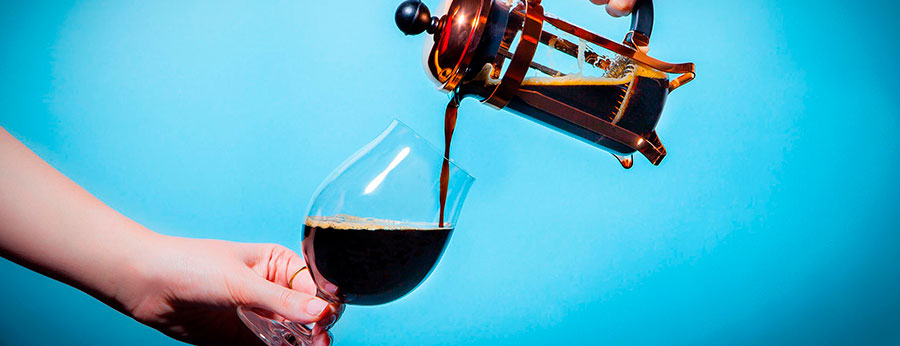August 01, 2019
Coffee for Brewers

How much coffee is too much coffee when it comes to beer? According to this Punch article on an all-coffee beer fest, there’s no such thing. We reached out to one of our favorite local, fair-trade bean bros, Peace Coffee Community Manager, Ryan Brown, for his take on the latest coffee beer trends.
“As to fruity, citrusy, lightly-roasted beans, It's definitely pushing the coffee beer trend toward lagers or lighter ales, even bracing hop-forward beers like India Pale Ales, which could all benefit from a coffee infusion. But it's more for subtle flavors or aromas than front and center coffee characteristics.”
“We love dark coffee beers! It's an obvious pairing...stouts make perfect sense because the flavors of the roasting process are so complimentary to rich, roasted malt flavors. Darker-roasted coffees tend to offer depth and backbone to lighter-bodied dark beers like Brown Ales or Porters as well. We like beers where coffee is highlighted and obvious, but not overpowering.”
As for which of the featured beers Ryan would like to try most, “I would love to try the Alaskan Heritage Coffee Brown because it feels like the most coffee-focused beer. To me, the breakfast beer or the bacon/coffee/hashbrowns/scrambled eggs in a beer idea feels a little like overkill. A nuanced, coffee-forward brew that props up a local roaster and delivers on flavors of both wonderful beer and well-roasted coffee, I'm in!”
- The Brewmasters
Is There Such a Thing As Too Much Coffee Beer?
Welcome to "I'd Tap That," in which Aaron Goldfarb and a panel of tasters pit "whales" against "shelf turds" in an effort to understand everything from Imperial IPA to Saison. This round: a look at the coffee beer explosion.

Every February for the last three years, Chicago has played host to the beer world’s most niche festival. A partnership between World Barista Champion Stephen Morrissey and beer industry impresario Michael Kiser as it’s cheekily called, is an all coffee beer festival. This year, paying guests can attend one of two Saturday afternoon sessions where they will have unlimited access to single-origin coffees, cold brew, coffee cocktails and, most importantly, 20 experimental coffee beers made specifically for the event.
There have always been beers that tasted like coffee, but for most of brewing history, that was because these beers—usually stouts and porters—were made with roasted malts. As anyone who’s ever drank a Guinness knows, dark roasts often express themselves with espresso-like notes. But adding actual coffee to beer is something else entirely.
Coffee-infused beer has been discussed in homebrewing circles as early as 1991, when a coffee beer recipe appeared in Charlie Papazian’s The New Complete Joy of Homebrewing (he recommended adding freshly ground beans in the final five minutes of the brewing process). But the first commercial appearance of coffee beer is generally attributed to New Glarus’s Coffee Stout. Launched in 1994, it caused a bit of a kerfuffle with the ATF, who claimed it was illegal to add caffeine to packaged alcohol.
Fast-forward a decade and geeks were lining up to nab the then-No. 1 beer in the world, 3 Floyds Dark Lord, which featured Mexican vanilla, Indian sugar and Intelligentsia Coffee’s Black Cat espresso. Pretty soon nearly every brewery would have a big, bold imperial stout packed with a local roaster’s coffee on offer. Brewers have now moved beyond the coffee stout.
“Coffee beers have undergone a bit of a renaissance,” wrote Michael Kiser, introducing the first Uppers & Downers event in 2013. “While the porters and stouts that define this style have been tweaked, refined and nearly perfected, others have branched out into new styles, techniques and coffees to try and find new territory in the brew.”
Today, nearly every style has been paired with coffee. No longer is it just dark roasts with dark beer; these days, you’re just as likely to see fruity, citrusy, lightly roasted beans matched to lighter beers. In fact, many modern coffee beers are less about smacking you over the head with dark-roasted coffee than trying to seamlessly integrate it into the brew, using the coffee variety’s unique aromas and flavors for added complexity. But, as we found out, it’s a tricky balancing act.
